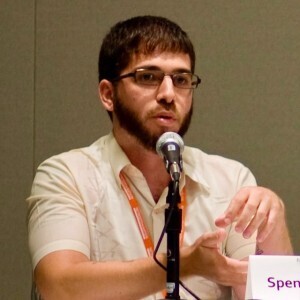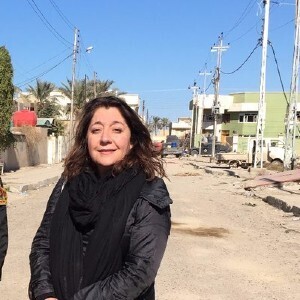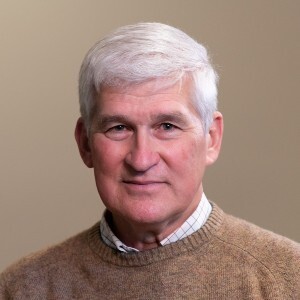This year marks the 20th anniversary of the United States invasion of Iraq, which led to more than 100,000 individuals dead, the destabilization of the Middle East, and long-term consequences for the U.S.
How do we understand this epochal moment in historical perspective? How do we connect what happened then to what’s happening now? Panelists will join experts and members of the Notre Dame community to discuss the aftermaths of war and peace, and provide a historical perspective for the invasion of Iraq.
A reception will follow the discussion.
This is the first of two events examining the history and legacy of the U.S. invasion of Iraq. Join us for Aftermaths II on Friday, March 31 »
Panelists:
-

Spencer Ackerman
Spencer Ackerman is an American journalist and writer. Focusing primarily on national security, he began his career at The New Republic in 2002 before writing for Wired, The Guardian, and The Daily Beast. He won a 2012 National Magazine Award for reporting on biased FBI training materials and shared in a 2014 Pulitzer Prize for his coverage of the 2013 global surveillance disclosures. His book Reign of Terror: How the 9/11 Era Destabilized America and Produced Trump was named a best nonfiction book of 2021 by The New York Times, The Washington Post and Foreign Policy.
-

Jane Arraf
Jane Arraf has covered Iraq since the 1990s and joined The New York Times as Baghdad bureau chief in 2020. She opened a CNN bureau in Baghdad during Saddam Hussein’s rule Iraq, and covered the Iraq war from the American invasion in 2003 through almost every major battle after that. She reported on Iraq’s first post-war elections, the bombing of the United Nations Iraqi headquarters, Iraq’s sectarian war, and the rise and fall of the Islamic State. Ms. Arraf has also covered Syria, Jordan and most other countries in the Middle East, and has been previously based in Istanbul, New York, Washington, Montreal and Amman, Jordan. She has won awards for her work in television and radio as an NPR correspondent, and is a former correspondent for The Christian Science Monitor and a former Edward R. Murrow press fellow at the Council on Foreign Relations in New York.
-

Andrew Bacevich
Andrew J. Bacevich Jr. is an American historian specializing in international relations, security studies, American foreign policy, and American diplomatic and military history. He is Professor Emeritus of International Relations and History at the Boston University Frederick S. Pardee School of Global Studies, and a retired career officer in the Armor Branch of the United States Army, retiring with the rank of colonel. He is a former director of Boston University's Center for International Relations (from 1998 to 2005), and co-founder and president of the Quincy Institute for Responsible Statecraft.
-

Omar Dewachi
Omar Dewachi is an Associate Professor of Medical Anthropology at Rutgers University. He works at the intersections of global health, the history of medicine, and political anthropology. Dewachi's scholarship focuses on the human and environmental manifestations of decades of conflict and military interventions in Iraq and the broader Middle East. His first book, Ungovernable Life, chronicles the rise and fall of state medicine in Iraq and the role of medical doctors in infrastructure making (and unmaking) in the country, dating back from the British Mandate (1920-1932).
Originally published at forum2022.nd.edu.